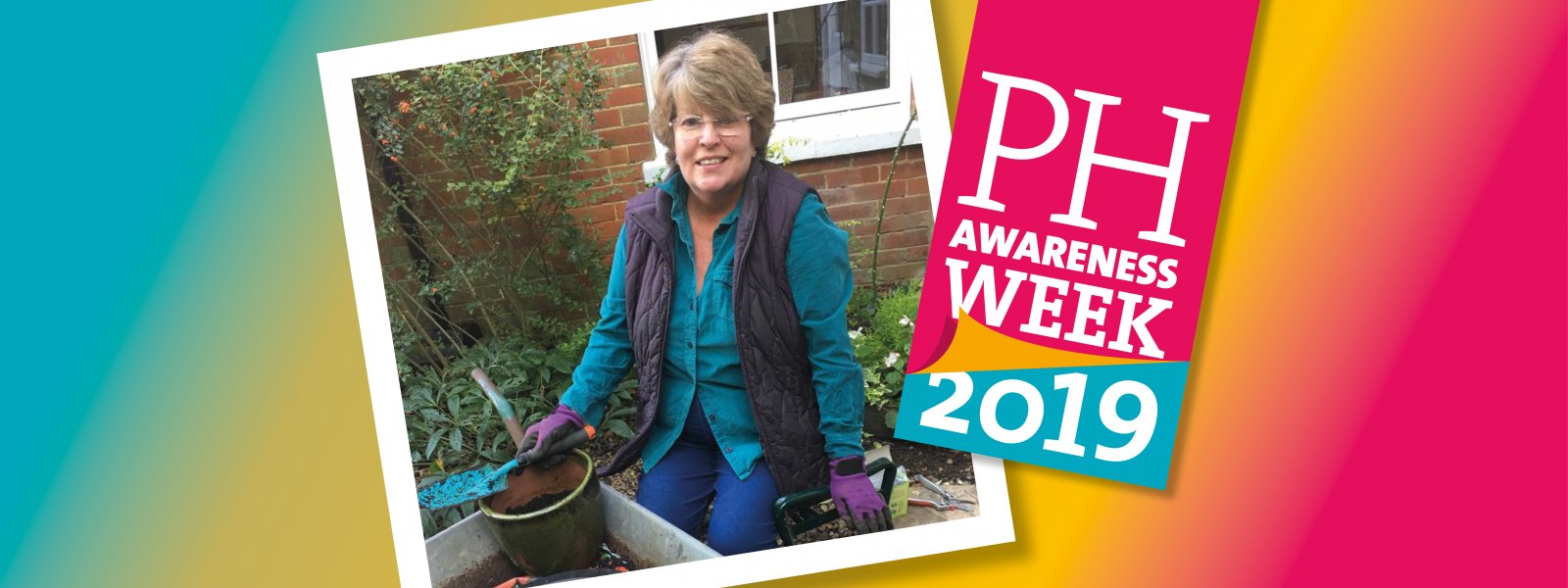“Raising awareness of PH is paramount”
PH Awareness Week 2019 marks one year since Jane Barker-Benfield from Surrey was diagnosed with idiopathic pulmonary arterial hypertension. This is her story.
Physically, my symptoms have improved dramatically due to the medication I’m on, but I do get side effects from the drugs – which vary from day-to-day.
Having PH does stop me doing things. For example, it stops me walking our Labrador, who came to us after retiring as a guide dog. I can’t walk her on my own anymore because, although for the most part she’s well behaved, she’s very strong and if she pulls it affects my breathing. My husband and family take her out, but I feel very guilty not being able to look after her like I used to.
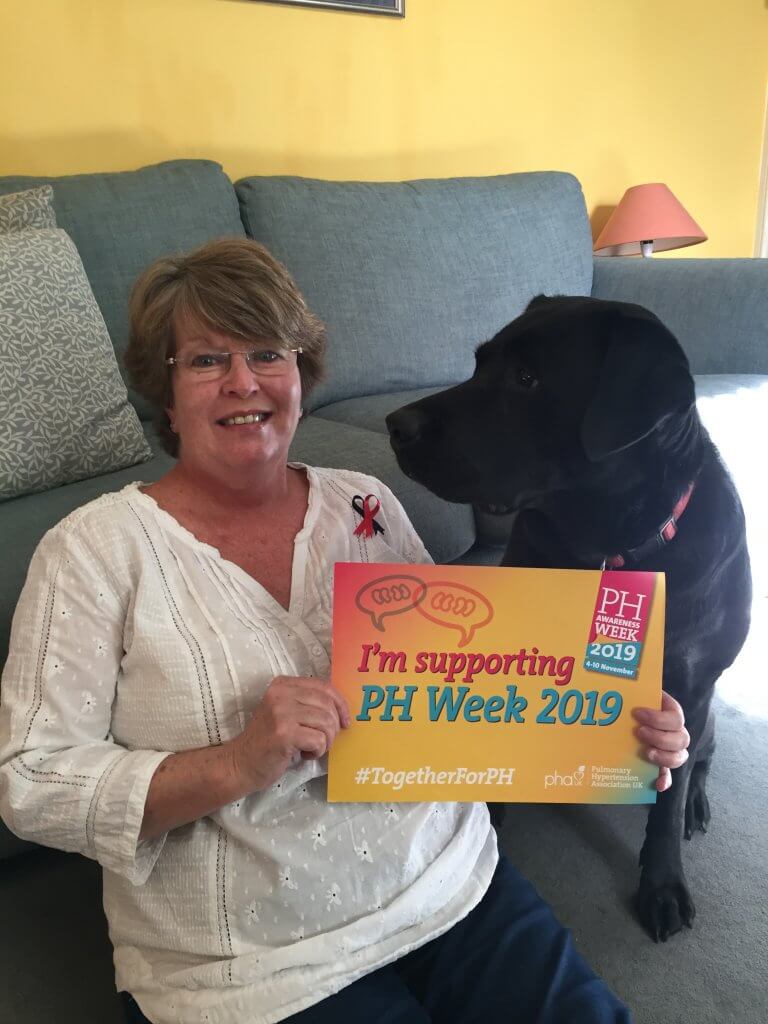
The biggest impact PH has had is that it now prevents me from being a registered carer for my mum. My parents are in their late eighties and mum had a stroke six years ago which left her severely disabled.
Although they live on the same road, just six doors down, I can’t help them very much anymore. Certainly not like I used to or would like to.
I used to be able to help get mum out of bed, help get her to the bathroom, cook and garden for them, things like that. All that’s changed now and seeing them struggle every day is really distressing and stressful. I can still help in a somewhat limited capacity by organising online shopping deliveries and requesting repeat prescriptions, but the feelings of guilt, frustration and helplessness have had a massive impact on me emotionally and on my wellbeing.
My dad does get some help to look after my mum, but not much. Sometimes I just feel so useless and I wish that I could help them more, but I can’t.
I know PH has a massive impact on patients with children, but there must be other people like me, who care for elderly parents or family members with long term health issues.
I have a grown-up son of 20 and three older stepchildren and two grandchildren. When I was first diagnosed, I tried to make everything as normal as possible, which was a mistake, as I quickly ran out of puff and felt unwell. I put myself under a lot of pressure. I struggle with the emotional impact of feeling like a burden and having to rely on others to help me with everyday tasks that only a short time ago I could do independently. Knowing you are slowly losing your independence is quite a difficult thing to have to face.
Mental and emotional wellbeing
I’ve always been a worrier and anxious person. Since my PH diagnosis, my anxiety has increased. I overthink everything and it can be quite overwhelming. If I’m having a bad day physically, I panic thinking the medication may not be working as well.
When I was first diagnosed, I was trying to carry on as normal, but reluctant to go out in case I felt poorly, particularly as the drug side effects were quite bad initially. A couple of times my friends took me out for coffee, and I had to leave, because I felt so bad. I was never sure whether it was me being anxious and panicking, or whether it was the medication side effects, or the PH. Maybe all of them?
I’ve lost confidence socially. I prefer being in my own home but saying that I do force myself to go out and do things I enjoy. Life would be very dull and boring if I didn’t. I always feel better for it – mentally and physically.
I’ve had professional help for my anxiety. I thought I could cope with my diagnosis but when it began to impact on me emotionally I started spiraling down into a black hole. When someone tells you that you may not live as long as you ought to, it comes as a big shock. I needed help.
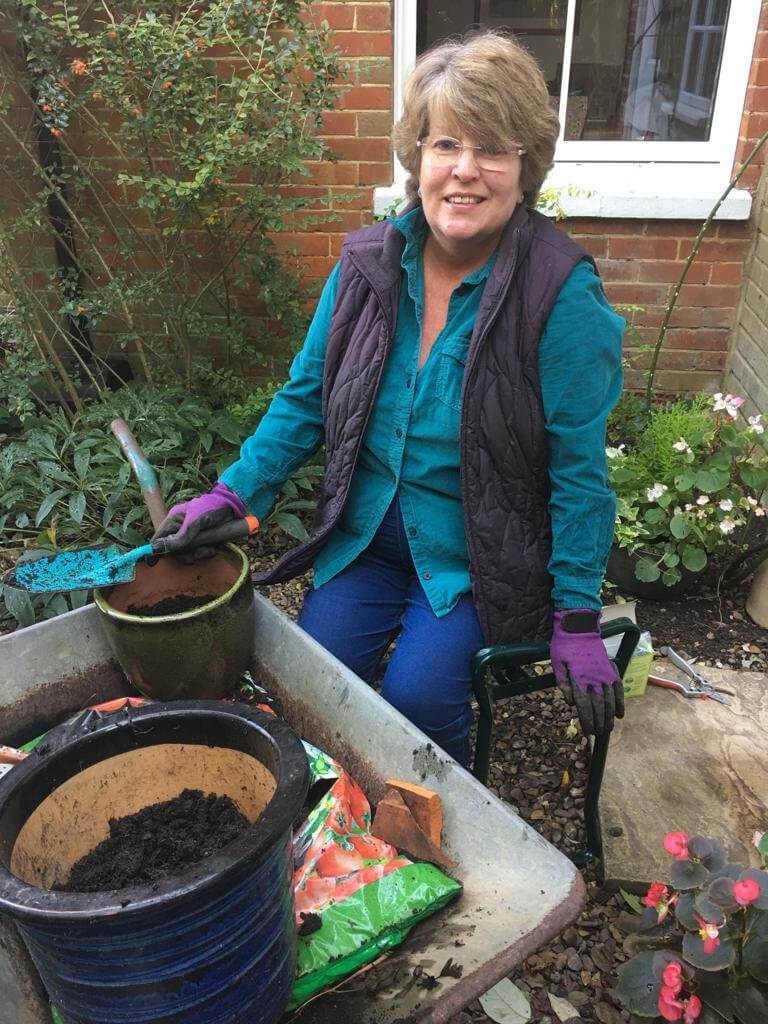
If I start getting anxious, it affects my breathing, and on top of the breathlessness from the PH, it compounds everything and makes it worse. I have to try and separate the two. Is it the symptoms getting worse, or am I just having a bad day?
Thankfully, having looked at the PHA UK website and read about their partnership with Anxiety UK, I was able to contact them and access some counselling. It was the best thing I’ve done and it’s really helped.
For me, one the hardest parts of living with PH is the frustration of slowly losing my independence. There were lots of things I had planned to do in the future. When those things start becoming out of reach it can be really difficult to get your head around.
PH can be isolating at times. Because I don’t look as though I have a disability it’s difficult for others to understand how you feel. If I said I’d been diagnosed with a more well-known life limiting condition, they would know what I was talking about and understand its impact.
When I tell people I have pulmonary hypertension, they assume I have high blood pressure and I can simply take some tablets. I have to explain it all over again and that can make me feel quite anxious.
It’s a strange kind of isolation. It’s like being surrounded by people, but still feeling alone. I try and limit putting myself into social situations where I’m likely to have to explain my diagnosis. It’s taken a year since diagnosis for me to be able to talk about my PH without getting stressed and overanxious. These compound the physical symptoms of PH, which doesn’t help.
It’s important to have a holistic approach to the treatment of PH. Physical and mental wellbeing go hand in hand. Treating both could have huge benefits to patients and their families. The team at my specialist centre have been brilliant at looking at all aspects of my treatment but I’m so grateful to have been able to access additional help and information through PHA UK. I look on the them as a member of my specialist team – they have been a lifeline.
The importance of raising awareness
I was very lucky to have been diagnosed quite quickly, but for some people, it takes years because it’s not a well-known condition. I had assumed my increased breathlessness was down to being unfit, until it got so bad I realised something wasn’t right. My GP told me that in his long career I am the only patient to present with PH. It breaks my heart reading about the struggles people have trying to get a diagnosis and treatment.
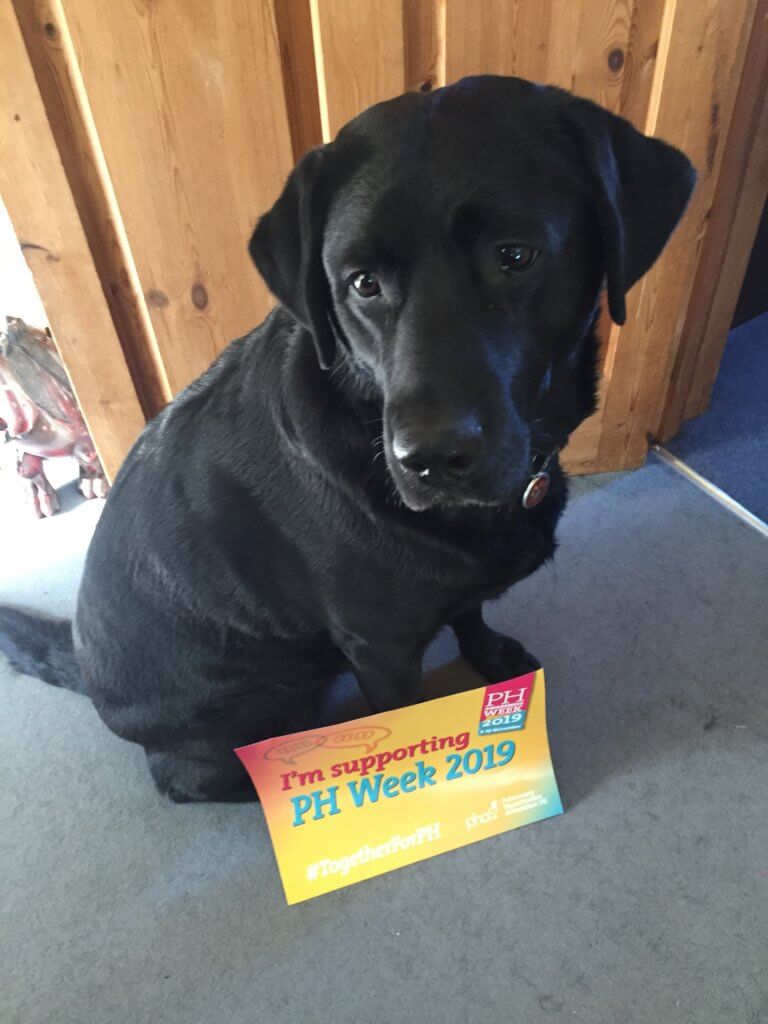
Raising awareness is paramount so patients won’t have to wait so long to receive a diagnosis, get access to targeted treatments and see an improvement in their quality of life.
Adapting and coping
Since being diagnosed with PH I try not to put things off ‘until another time’. I love being outside, and in the garden, and I just appreciate everything more. I like to sit and take things in, live in the moment, and that’s helps with my anxiety and over thinking. I try not to think too much about the future as that only does my head in. I find it easier to talk about PH now without it affecting me emotionally. The more you can talk about it, and others understand how you feel, the easier it gets.
I ask for help more now, and I’ve learned to adapt. I spend a lot of time thinking outside of the box to make day-to-day things easier. I’ve recently got an electric bike – for short distances I can now cycle alongside my husband when he’s walking the dog and I feel more independent.
Thanks to Anxiety UK, counselling and a mindfulness app I’ve now got strategies in place which have helped reduce my anxiety and panic significantly.
Dogs, gardening, sewing and family are a huge part of my life. When I was diagnosed with PH last year, I didn’t realise how important my love of sewing and textile crafts would be in helping me cope with the mental and physical challenges of having the condition.
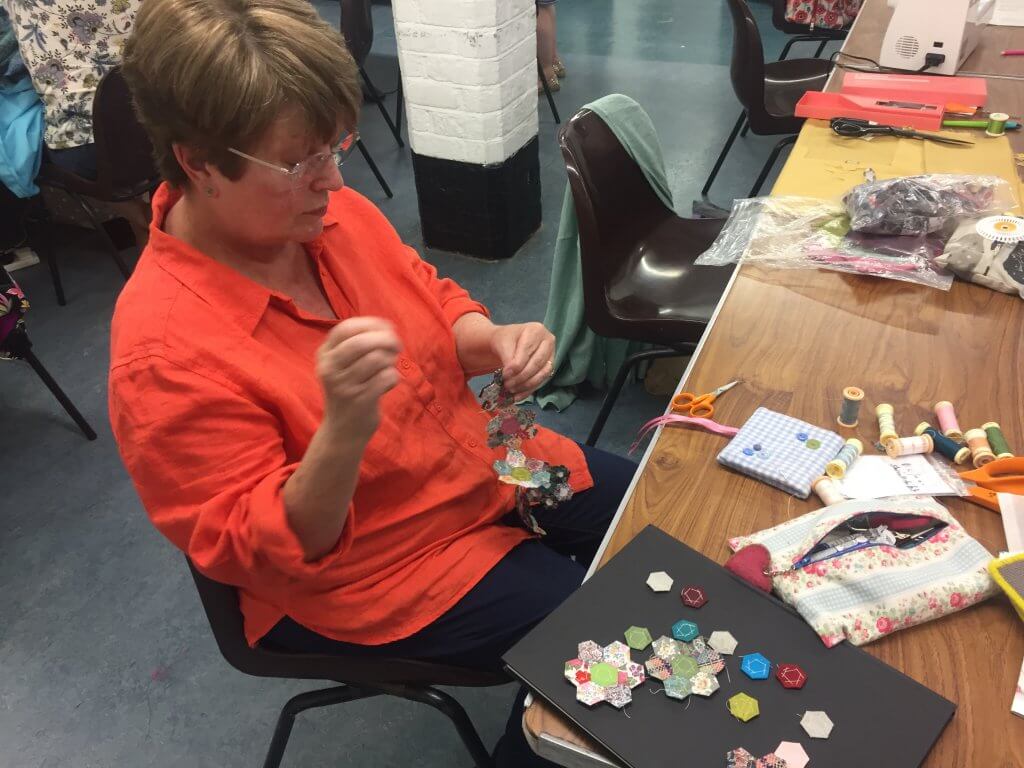
Textile crafts have been my hobby for many years, and I’ve tried quite a few – embroidery, lace making, needle felting, crochet, rag rugs and countless sewing projects. I’ve always got several projects on the go and get totally absorbed, so for me it’s a brilliant distraction from my symptoms, medication side effects and my propensity to over-think everything. I try and work on something every day, even for a few minutes. It really helps.
